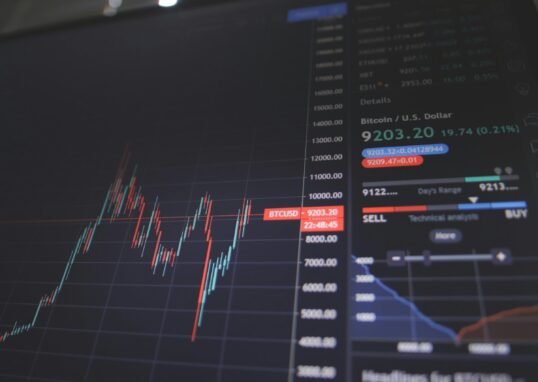
When it comes to investing and trading, two popular options that often come to mind are Forex and stocks. Both offer the potential for financial gain, but they operate in different markets and have distinct characteristics. In this article, we will delve into what Forex and stocks are, explore the differences between Forex trading and stocks trading, and discuss the pros and cons of each.
What is Forex?
Forex, also known as foreign exchange or FX trading, refers to the global decentralized marketplace for trading currencies. In simpler terms, it involves buying one currency and selling another simultaneously. The Forex market operates 24 hours a day, five days a week, allowing traders to engage in currency trading around the clock.
What are Stocks?
Stocks, on the other hand, represent ownership shares in a publicly traded company. When you buy stocks, you become a partial owner of that company and have the potential to profit from its success. Stocks are traded on stock exchanges, such as the New York Stock Exchange (NYSE) or NASDAQ, and their value fluctuates based on various factors, including company performance, market conditions, and investor sentiment.
Forex Trading vs. Stocks Trading: The Differences
While both Forex and stocks trading involve buying and selling assets, there are several key differences between the two:
1. Market Accessibility
Forex markets are highly accessible, as they operate globally and are open 24/5. In contrast, stock markets have specific trading hours and are subject to regional market closures.
2. Market Size and Liquidity
The Forex market is the largest financial market in the world, with an average daily trading volume of over $6 trillion. This immense size results in high liquidity, meaning there is a higher chance of executing trades quickly and at desired prices. Stocks, while still significant, have a smaller market size and may be subject to lower liquidity.
3. Trading Hours
Forex trading is not limited by geographical boundaries, allowing traders to engage in currency trading at any time of day or night. Stocks, however, are typically traded during specific market hours, which may vary depending on the exchange.
4. Volatility
The Forex market is known for its high volatility, meaning that currency prices can experience significant fluctuations in short periods. Stocks can also be volatile, but their price movements are often influenced by company-specific news, earnings reports, and market sentiment.
5. Leverage
Forex trading offers the potential for high leverage, allowing traders to control larger positions with smaller amounts of capital. This can amplify both profits and losses. Stocks, on the other hand, generally have lower leverage options and are subject to stricter regulations.
Pros and Cons of Forex Trading
Forex trading has several advantages:
Pros:
- High liquidity and market accessibility
- Potential for profit in both rising and falling markets
- Ability to trade with leverage
- Diverse range of currency pairs to trade
However, Forex trading also carries certain risks:
Cons:
- High volatility and rapid price movements
- Potential for significant losses, especially when using leverage
- Complex market dynamics and factors influencing currency prices
Pros and Cons of Stocks Trading
Stocks trading offers its own set of advantages:
Pros:
- Potential for long-term capital appreciation
- Opportunity to invest in well-established companies
- Access to dividends and shareholder rights
However, there are also some drawbacks to consider:
Cons:
- Lower liquidity compared to Forex
- Reliance on company-specific news and market conditions
- Higher capital requirements for significant investments
What to Expect from Each Market
Forex trading offers fast-paced, dynamic trading opportunities with the potential for quick profits or losses. Traders need to stay updated on global economic news, geopolitical events, and central bank decisions that can impact currency prices.
Stocks trading, on the other hand, often requires a longer-term approach. Investors analyze company fundamentals, industry trends, and market conditions to make informed investment decisions. Dividends and capital appreciation are common objectives for stock investors.
Ultimately, whether you choose Forex or stocks trading depends on your trading style, risk tolerance, and investment goals. It’s important to thoroughly research and understand the intricacies of each market before diving in.
In conclusion, Forex and stocks trading are distinct in their markets, characteristics, and trading strategies. While Forex offers high liquidity, accessibility, and potential for profit, stocks provide the opportunity for long-term investments and ownership in companies. Both markets have their pros and cons, and it’s crucial to consider your individual preferences and risk appetite when deciding which avenue to pursue.








